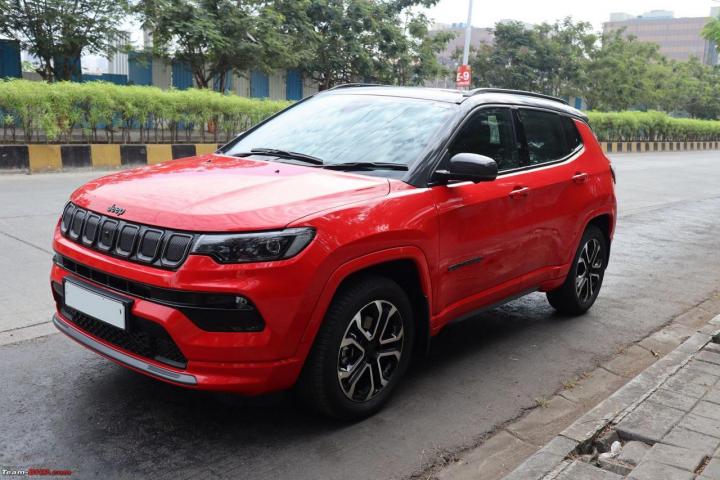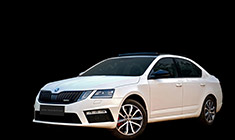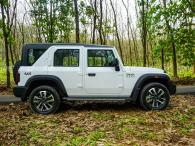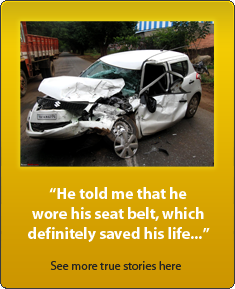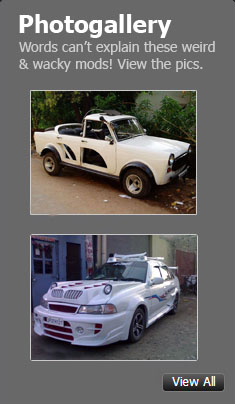News
Is my prosthetic leg causing my Jeep's clutch plate to wear out faster?
I have driven it for about 800 kms so far, post-accident. The overall car has run 4700 kms.
BHPian fawad0222 recently shared this with other enthusiasts.
As most of you know, I am using a below-knee left leg prosthesis after having met a road traffic accident in November 2022.
With the grace of God and prayers from you all now I have started leading a regular life, including regular walks and cycling.
I drive a Jeep Compass, diesel manual, had bought just before the accident. While driving, I keep the left prosthetic foot on the clutch as keeping it on the dead pedal is difficult and the operation of the clutch, is clumsy. This way clutch doesn't get engaged until I press it for its intended purpose and there is only a slight downward movement of the clutch (free movement), without its actual engagement. I have driven it for about 800 kms so far, post-accident. The overall car has run 4700 kms. Recently my brother had taken it to hills where after climbing just10 kms, there was a strong burning smell in the cabin and slight smoke in the engine bay. The car was taken to the ASS on a flatbed where the whole clutch plate assembly was changed.
Now I am unsure whether the clutch plates were damaged due to my driving and need inputs from the Bhpians who have technical know-how of such matters. It will be of great help, as I will accordingly decide to either keep the car or replace it with an automatic one.
Sincere regards
Here's what GTO had to say on the matter:
Fawad, my compliments on your spirit & recovery efforts. Best wishes to you.
Please do a lateral upgrade to minimize the financial impact - sell your Compass and buy a pre-owned AT. If you sell your car early and buy used one, it reduces the depreciation hit.
Get a Compass AT, or any other AT crossover. The options are endless in the pre-owned market. Your doctor obviously knows 100X more than I do, but IMHO, it's best not to put the Prosthesis on a mundane task like the clutch pedal for which ready solutions (in the form of an AT) are available.
Here's what BHPian Kosfactor had to say on the matter:
See if there is a way to modify the dead pedal so that it can better accommodate your driving, Yes any weight on the clutch pedal will wear out your clutch, hydraulic clutch actuation has no slack at the top.
I cannot say if it's your driving that has damaged the clutch or your brother's driving, because someone who is used to driving a small turbo diesel or petrol engine may easily abuse the clutch of a larger turbo diesel engine vehicle because of their driving habits.
2.0 MJD`s gearing is tall, a clutch overhaul will cost a bomb unless you maintain very good clutch discipline in traffic \ hills etc.
Here's what BHPian SS-Traveller had to say on the matter:
Deeply sorry to learn about your unfortunate accident and handicap.
Even with a normal foot (even barefoot) resting on the clutch pedal, friction plate wear is highly accelerated. In your case, the touch sensation of the prosthetic foot is zero, so you are unable to figure out whether the foot pressure is enough to make the clutch slip or not. The best advice is to devise a raised dead pedal alongside the C pedal, onto which you can move and rest the prosthetic foot till the time the clutch needs to be used. Absolutely do NOT rest your foot on the C pedal when not changing gears.
Here's what BHPian Axe77 had to say on the matter:
Hi Fawad. Very happy to hear that you are resuming all activities with maximum normalcy post the very unfortunate accident.
I am in the same camp as some others here. I would simply recommend changing over to an automatic in as financially viable a manner as possible. I’d also echo the suggestion of a lateral upgrade/transition as feasible.
I am neither a doctor nor someone using a prosthetic so fundamentally ill-equipped to respond with authority but just intuitively it seems to me that it would be a better bet to operate an automatic vehicle rather than operate the clutch with these adjustments.
Check out BHPian comments for more insights and information.



